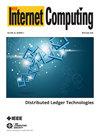Multiagent Federated Deep-Reinforcement-Learning-Enabled Resource Allocation for an Air–Ground-Integrated Internet of Vehicles Network
IF 4.4
4区 计算机科学
Q1 COMPUTER SCIENCE, SOFTWARE ENGINEERING
引用次数: 0
Abstract
As an emerging architecture for the future 6G Internet of Vehicles (IoV), the air–ground-integration network has become a paradigm to achieve reliable interconnection everywhere. Unmanned aerial vehicles (UAVs), as low-altitude aerial platforms, can cooperate with ground infrastructures with the advantages of high flexibility and low cost. However, wireless resource allocation for vehicle-to-UAV (V2U) communications has encountered various challenges, such as air–ground spectrum sharing, dynamic topology, fast-changing channels, and time-sensitive services. In this article, we propose a multiagent federated learning and dueling double-deep Q-network (D3QN)-based resource allocation, namely, Fed-D3QN, to jointly optimize channel selection and power control to meet the low latency and reliability requirements of IoV services. Simulation results demonstrate that the proposed Fed-D3QN algorithm has good stability in the highly dynamic air–ground integration network. Additionally, it reduces the total delay of vehicle-to-infrastructure links and improves the transmission success rate of V2U links.基于多智能体联合深度强化学习的地空一体化车联网资源分配
作为未来6G车联网(IoV)的新兴架构,空地一体化网络已成为实现全球可靠互联的典范。无人机作为低空飞行平台,可以与地面基础设施协同工作,具有灵活性高、成本低的优点。然而,车对无人机(V2U)通信的无线资源分配遇到了各种挑战,如空地频谱共享、动态拓扑、快速变化的信道和时间敏感服务。在本文中,我们提出了一种基于多智能体联合学习和决斗双深度Q网络(D3QN)的资源分配,即Fed-D3QN,以联合优化信道选择和功率控制,以满足IoV服务的低延迟和可靠性要求。仿真结果表明,所提出的Fed-D3QN算法在高度动态的空地一体化网络中具有良好的稳定性。此外,它减少了车辆到基础设施链路的总延迟,并提高了V2U链路的传输成功率。
本文章由计算机程序翻译,如有差异,请以英文原文为准。
求助全文
约1分钟内获得全文
求助全文
来源期刊

IEEE Internet Computing
工程技术-计算机:软件工程
CiteScore
7.60
自引率
0.00%
发文量
94
审稿时长
6-12 weeks
期刊介绍:
This magazine provides a journal-quality evaluation and review of Internet-based computer applications and enabling technologies. It also provides a source of information as well as a forum for both users and developers. The focus of the magazine is on Internet services using WWW, agents, and similar technologies. This does not include traditional software concerns such as object-oriented or structured programming, or Common Object Request Broker Architecture (CORBA) or Object Linking and Embedding (OLE) standards. The magazine may, however, treat the intersection of these software technologies with the Web or agents. For instance, the linking of ORBs and Web servers or the conversion of KQML messages to object requests are relevant technologies for this magazine. An article strictly about CORBA would not be. This magazine is not focused on intelligent systems. Techniques for encoding knowledge or breakthroughs in neural net technologies are outside its scope, as would be an article on the efficacy of a particular expert system. Internet Computing focuses on technologies and applications that allow practitioners to leverage off services to be found on the Internet.
 求助内容:
求助内容: 应助结果提醒方式:
应助结果提醒方式:


